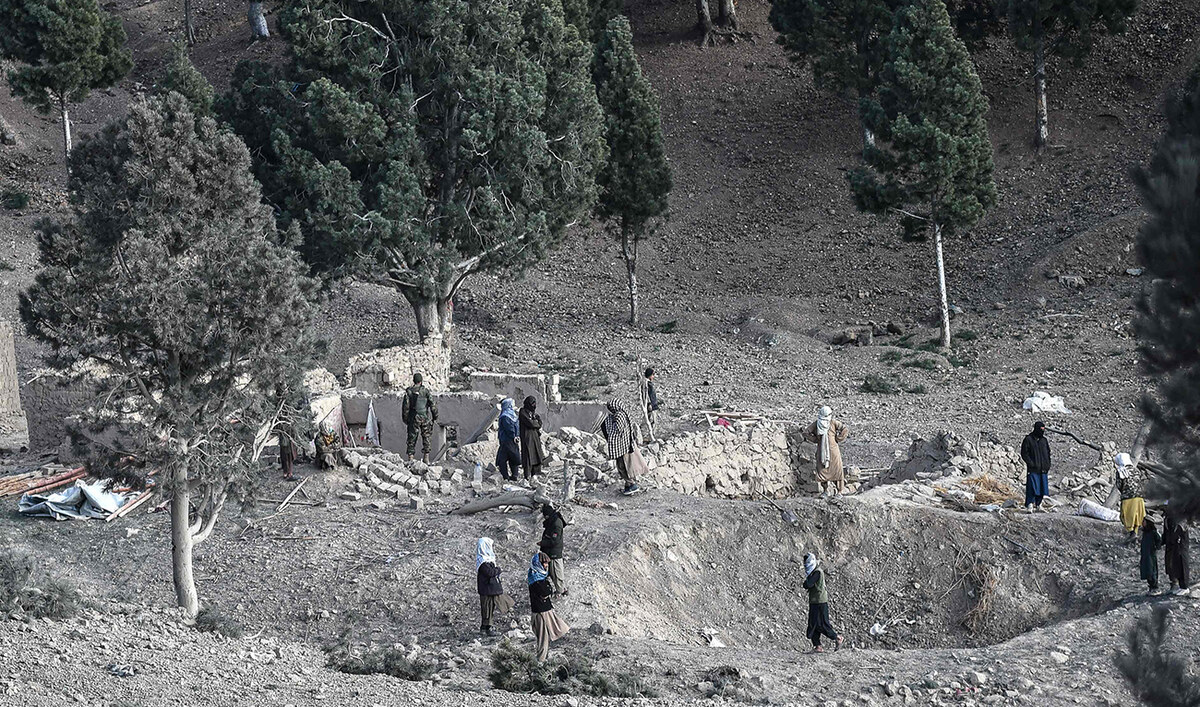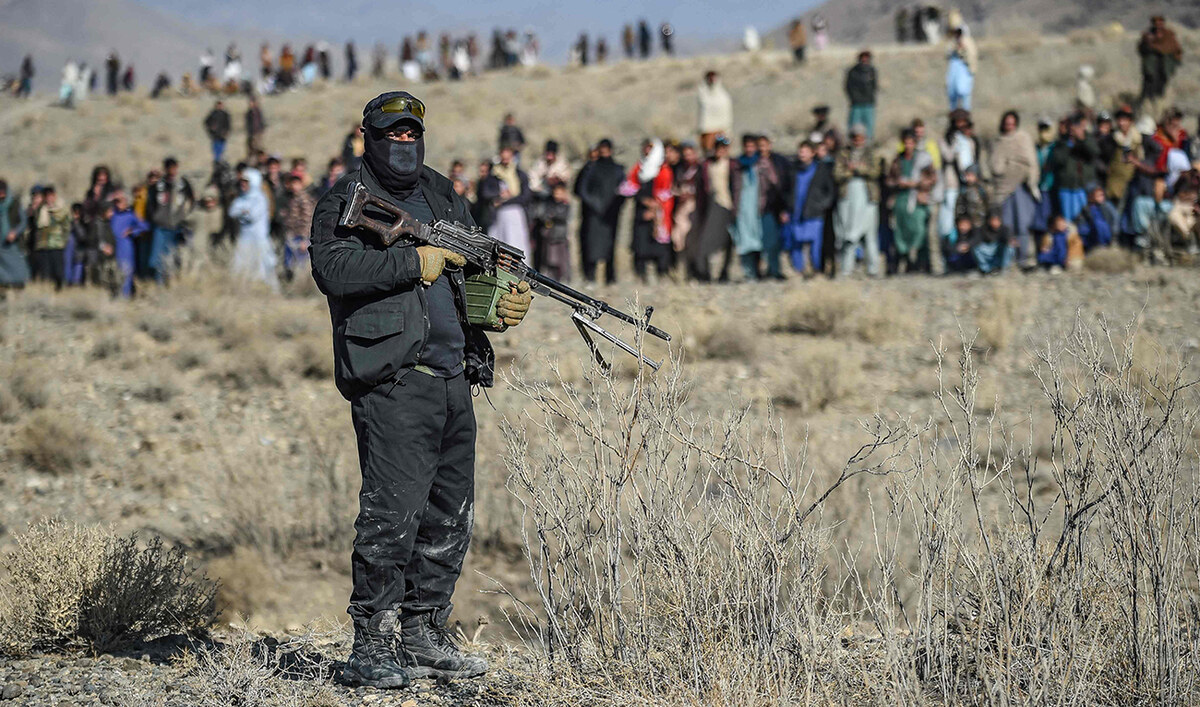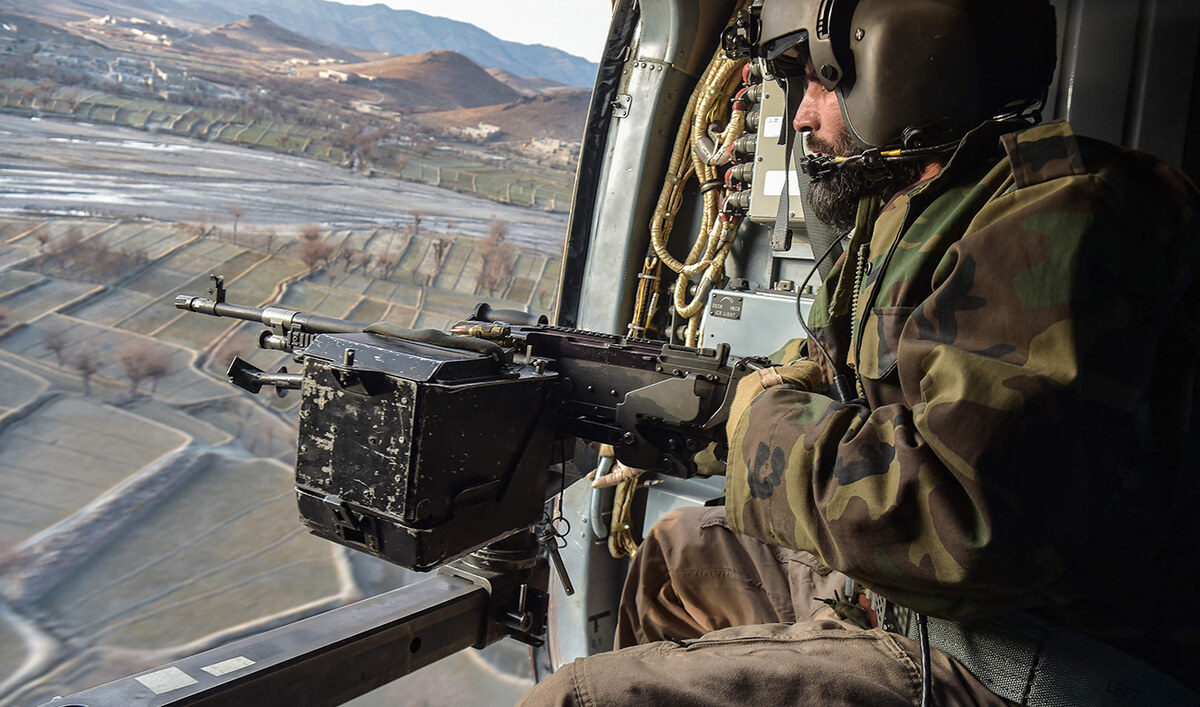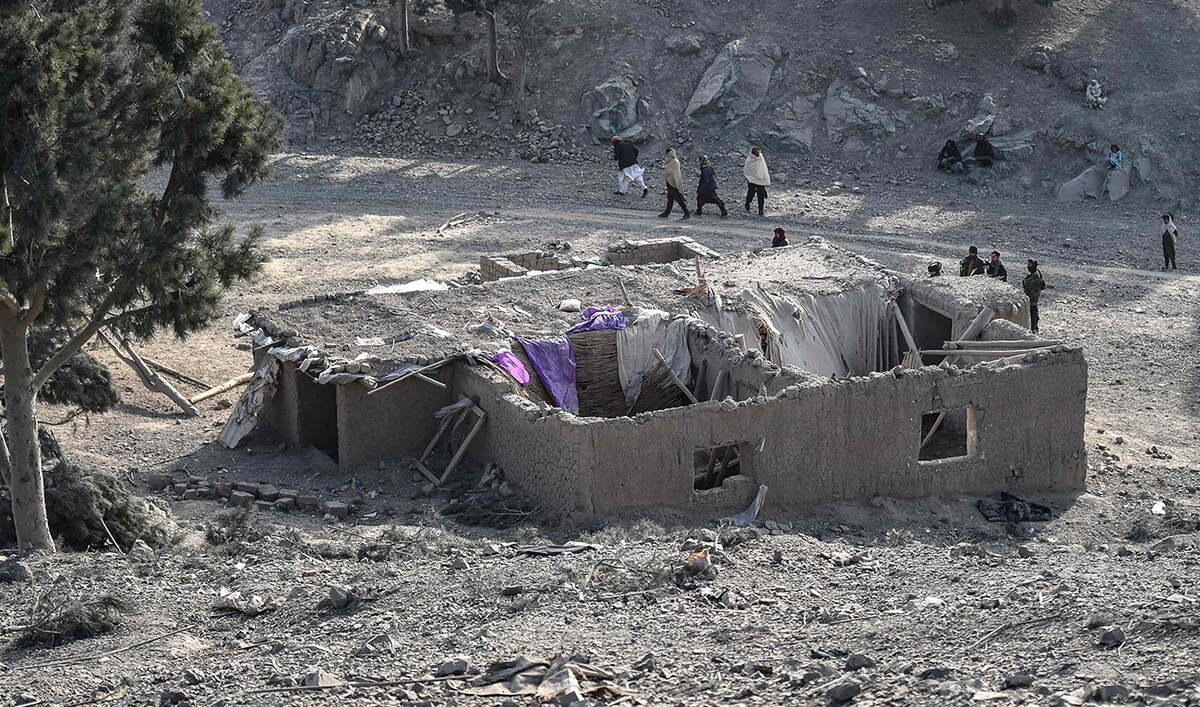ISLAMABAD: Pakistan’s pharmaceutical industry on Thursday threatened to hold a nationwide strike and shut down factories if the government failed to withdraw a 17 percent tax on the import of medicinal raw material in the next five days.
The government imposed the tax in January by introducing a supplementary finance bill, commonly known as mini-budget, while promising that the amount would be refunded to the industry to prevent an increase in drug prices in the local market.
The government also withdrew tax exemptions on numerous items and levied additional taxes of Rs360 billion to meet some major conditions imposed by the International Monetary Fund for the resumption of a $6 billion bailout package.
Industry officials informed the government had reneged on its promise, adding the pharmaceutical industry’s Rs2 billion had yet to be refunded.
“We will be forced to protest in the streets if the government doesn’t withdraw this unjustified tax in the next five days,” Qazi Muhammad Mansoor Dilawar, chairman Pakistan Pharmaceutical Manufacturers Association, said during a news conference in Islamabad along with other top industry office bearers.
He said the industry representatives had recently held three meetings with finance minister Shaukat Tarin before deciding to go public with their grievances since their efforts had gone to a waste.
“The government apparently wants to crush the pharmaceutical industry by only allowing tax refunds after raw material consumption,” Dilawar maintained while adding it would take the industrial players over a year to fully utilize the imported raw material to manufacture medicines.
“We are not willing to accept this and urge the government to either fully withdraw the tax or refund it at the purchase stage,” he said.
He pointed out there was a risk of medicine shortages and price hikes of essential drugs if the government would not accept these demands.
“We cannot increase the price of any medicine on our own,” he clarified, “but the shortage will surely create a black market.”
The pharmaceutical industry is among the most regulated sectors in Pakistan, and only the federal government is authorized to fix the prices of medicines on the recommendation of a drug regulator.
The industry has also been meeting about 80 percent of the local demand of lifesaving drugs. It also contributes to the country’s export revenue and provides jobs to about one million people.
“Our country and people cannot afford medicine imports due to the given economic conditions, so the government should facilitate the pharmaceutical industry instead of imposing unjustified taxes on it,” Dilawar added.
Pakistan’s pharmaceutical industry threatens nationwide strike, seeks abolition of import tax
https://arab.news/rkm8f
Pakistan’s pharmaceutical industry threatens nationwide strike, seeks abolition of import tax

- Government promised in January to refund tax after full consumption of raw material to prevent price hikes in local market
- Industry leaders say will take them more than year to utilize imported raw material while manufacturing medicines
Pakistan installs first smog cleaning tower in Lahore for field testing

- Lahore, Pakistan’s second-largest city, often ranks among the most polluted places in world
- Smog towers are large-scale air purifiers that create localized zones of improved air quality
ISLAMABAD: Pakistan has installed its first locally designed smog cleaning tower in Lahore, a city that frequently ranks among the most polluted in the world during the winter season, the Environmental Protection Agency of Punjab announced this week.
Smog towers are large-scale air purifiers designed to reduce pollution by filtering out fine particulate matter and other harmful pollutants. Using fans, the towers draw in polluted air, which passes through high-efficiency filters to capture PM2.5 and PM10 particles, which pose severe health risks. The cleaned air is then released back into the surrounding area, improving local air quality.
While smog towers offer potential short-term relief, their efficacy in addressing large-scale urban air pollution remains debated.
“Pakistan’s first locally designed Smog Cleaning Tower installed in Lahore,” the provincial environmental agency said in a social media post this week. “A 15-day field test will be conducted to assess its performance for further installations.”
The smog tower, located in Mehmood Booti, is capable of purifying 50,000 cubic meters of air per hour and is designed to reduce harmful PM2.5 particulate matter.
Lahore, Pakistan’s second-largest city, suffers from severe air pollution during the winter, largely due to the phenomenon of smog. A combination of vehicle emissions, industrial output and crop burning in Punjab contributes to hazardous levels of fine particulate matter, with the city often topping global rankings for poor air quality.
Residents endure weeks of poor visibility, health warnings and respiratory illnesses as the Air Quality Index (AQI) frequently exceeds 300, categorized as “hazardous” by international standards. This year, the AQI reached unprecedented levels in several cities of Punjab, rising well over 1,000.
Smog towers can create localized zones of improved air quality, especially in high-density urban areas. However, they are expensive to build and maintain, with limited coverage areas.
Imran Khan says he declined house arrest, urges overseas Pakistani to halt remittances

- Ex-PM’s social media post hints at a backchannel offering him a ‘deal,’ without naming interlocutors
- Khan criticizes military trials and sentencing of supporters, says the proceedings violated basic rights
ISLAMABAD: Former Prime Minister Imran Khan, who has been in jail for well over a year, said in a social media post on Friday he rejected a house arrest deal, as he also urged Pakistanis abroad to boycott remittances in protest against the country’s political situation.
Khan’s statement comes only a few days after the government began formal negotiations with his Pakistan Tehreek-e-Insaf (PTI) party to address mutual differences and ease the country’s growing political polarization.
Talks began after Khan threatened civil disobedience, urging overseas Pakistanis to halt remittances unless the government freed PTI political prisoners and formed judicial commissions to probe violent protests on May 9 and Nov. 26, blamed on his supporters.
His latest message hints at a backchannel offering “a deal,” without naming interlocutors.
“The proposal I received for a deal was: ‘Negotiate with us, and we will give your party political space, but you will be placed under house arrest and moved to [your] Bani Gala [residence],’” read a message posted from Khan’s account on X, formerly Twitter.
“My response was that all other political prisoners must first be released. I would rather stay in jail than accept any deal. I will neither go into house arrest nor to any jail in Khyber Pakhtunkhwa,” he added, referring to the province ruled by his party.
Khan doubled down on his call for overseas Pakistanis to boycott remittances, framing it as part of a campaign for “true freedom and the restoration of democracy.” It is not clear how his stance might affect the ongoing negotiations between his party and the government.
“Currently, the government is playing ‘committee after committee’ regarding our demands,” he said, adding that the boycott campaign would be halted if negotiations produced positive results.
Khan also assured his supporters that the coming year would bring better prospects for democracy in the country while pledging to remain steadfast.
Criticizing military trials and recent sentencing of his party supporters arrested in the wake of the May 9 protest last year, Khan said they had violated basic rights of civilians and caused international embarrassment for Pakistan.
“If these trials had been conducted in open courts, the video footage of the events of May 9 would have had to be presented,” he said, adding transparent trials were also guaranteed in Pakistan’s constitution.
Hundreds of people carrying flags of Khan’s party attacked government and military installations last year on May 9 after he was briefly detained on corruption charges.
The government is yet to react to the former premier’s statement.
Pakistan using dual approach of diplomacy, military action against Afghan-based militants — analysts
Pakistan using dual approach of diplomacy, military action against Afghan-based militants — analysts

- PM Sharif says cross-border attacks from against civilians, security forces ‘unacceptable’ for Pakistan
- An Afghan analyst believes Pakistani airstrikes in his country can create sympathy for groups like TTP
KARACHI: Pakistan is using both political engagement and military action to counter militant groups operating from Afghanistan, analysts said on Friday, after Afghan authorities reported airstrikes conducted by Pakistani forces this week that killed 46 people.
The strikes, which targeted alleged hideouts of the banned Tehreek-e-Taliban Pakistan (TTP), came amid allegations by Pakistani officials of cross-border militant attacks, as extremist violence targeting civilians and security forces has surged more recently.
Afghan authorities claimed the victims included residents from Pakistan’s border regions, who were uprooted during military operations against TTP fighters in recent years, as the United Nations expressed concern over civilian casualties and urged an investigation.

While Pakistan has not officially confirmed the airstrikes, with both the foreign office and the military’s media wing declining to comment, Prime Minister Shehbaz Sharif said the TTP cross-border attacks constituted a “red line” for his government, asking Afghan authorities to take action against militants using their soil.
The reported airstrikes coincided with a visit to Kabul by Mohammad Sadiq, Pakistan’s special representative for Afghanistan, to discuss trade and regional ties.
“It seems that Pakistan wants to continue to talk to the Taliban while also flexing its military muscle, just as the Taliban did once they engaged in talks with the US,” Husain Haqqani, a former Pakistani ambassador, told Arab News.
He maintained that Pakistan’s military leadership believed its past support for the Afghan Taliban, when the US-led international forces were still operating in Kabul, would shield it from violent attacks, adding these armed groups did not consider any Muslim country “exempt from imposition of their extreme ideology.”
However, Sami Yousufzai, an Afghan political analyst, highlighted the delicate nature of Pakistan-Afghanistan ties, saying such strikes were viewed as a direct affront by Kabul.

“Afghanistan is particularly sensitive to invasions or attacks within its borders,” he told Arab News, acknowledging that the airstrikes resulted from growing pressure on Pakistan due to the surge in TTP attacks.
However, he maintained Pakistan had made errors of judgment relating to the timings of the attack, as one of its senior diplomats, Ambassador Sadiq, was in Afghanistan, and the number of civilian casualties.
Yousufzai informed that Afghan authorities had recently taken confidence-building measures at Pakistan’s request by relocating 200 TTP families from border areas to central Afghanistan, adding that the move had been undermined by the airstrikes.
“Afghanistan has little to lose, but as a more stable nation, Pakistan should avoid irresponsible actions,” he continued. “Such attacks will not eliminate the TTP. Instead, it will likely increase their support.”
He maintained the real issue was the TTP presence in Pakistan, adding that its fighters were even residing in districts like Bannu and Dera Ismail Khan, which do not share border with Afghanistan, though they have experienced several deadly attacks.

Mehmood Jan Babar, a Peshawar-based journalist specializing in Afghan and tribal affairs, argued the strikes did not derail diplomacy, as evidenced by continued meetings between Sadiq and Afghan officials, including Taliban Foreign Minister Amir Khan Muttaqi.
Asked about Afghan warning of consequences to Pakistan, he said: “Such speeches and statements are often for public consumption.”
Syed Khalid Muhammad, a security expert in Islamabad, dismissed the claims of civilian casualties, arguing that militants deliberately use civilian populations as shields.
“The key thing to understand about the Pakistani airstrikes on the TTP is that the militants have hidden themselves among the civilian population, much like every terror group globally, which serves a greater purpose for them,” he added. “It allows them to manufacture an alternative narrative to gain sympathy.”

Meanwhile, Pakistani military’s spokesperson Lt. Gen. Ahmed Sharif Chaudhry said his country had repeatedly pointed out to the Afghan government on state level that the TTP and other militants had been launching cross-border attacks in Pakistan in a news conference earlier today.
“Pakistan will leave no stone unturned in dismantling terrorist networks and safeguarding its citizens against terrorism,” he told the media without confirming the airstrikes.
Pakistani investigation agency says has arrested human smuggler with India links

- Five Pakistani illegal migrants were killed this month when their boat capsized near a Greek island
- FIA says suspected human smuggler worked with an Indian in Azerbaijan to send people to Poland
KARACHI: Pakistani authorities on Friday announced the arrest of a human smuggler from Karachi, accusing him of working with an Indian agent to illegally send people to Europe, as Prime Minister Shehbaz Sharif stressed the need to eradicate the practice while presiding over a meeting in the federal capital.
The arrest follows a renewed government drive against human smuggling after five Pakistani nationals died in a boat tragedy near the Greek island of Gavdos earlier this month.
Last year, the issue of illegal migration to Europe drew national attention when hundreds of people, including 262 Pakistanis, drowned after their overcrowded vessel capsized off the southwestern Greek coastal town of Pylos during a voyage from Libya.
The Federal Investigation Agency’s (FIA) announcement of the arrest of Abdul Shakoor, the suspected human smuggler, has brought yet another illegal migration route to Europe under the spotlight, as it said the accused collaborated with an Indian national based in Central Asia.
“An Indian agent named Gautam Sharma, residing in Azerbaijan, was coordinating the illegal transportation of the suspects from Azerbaijan to Poland,” the FIA informed, adding three other suspects, Hasib Ahmed, Qaiser Ahmed and Usman Ali, hailing from different areas of Punjab province, were also arrested.
“Human smuggler Abdul Shakoor had made agreements to send the other suspects to Poland, charging $5,028.89 per person,” the statement added. “The suspects paid the agent an advance of $898.02 per person.”
The FIA also named the organizations that helped the suspects obtain visas.
Separately, the prime minister chaired a review meeting on measures to curb human smuggling, wherein he reviewed the report of a committee formed to investigate the latest migrant boat tragedy near Greece and present its findings.
Sharif instructed the formation of a committee, led by Interior Minister Mohsin Naqvi, to develop sustainable solutions for tackling human smuggling.
“The Prime Minister directed that all individuals involved in the heinous human smuggling trade be arrested within a week and legal action be taken against them,” said an official statement circulated by his office after the meeting.
The prime minister questioned why no disciplinary action had been taken so far against complicit government officials facilitating smugglers and directed authorities to ensure stricter visa checks and compliance with travel regulations for all outbound migrants.
The meeting was also provided an update on the identification of Pakistani nationals involved in the boat capsize near Greece this month and the progress of repatriating their bodies.
Pakistan rescues nine crew members from Indian cargo vessel after distress alert

- The rescue followed another operation this month in which 12 Indian crew members were saved
- Incident reflects sporadic cooperation between the two nuclear rivals amid continuing tensions
KARACHI: The Pakistan Maritime Security Agency (PMSA) successfully rescued nine crew members from an Indian cargo vessel, according to an official statement, after receiving a distress alert from Mumbai.
The incident marks the second such rescue operation by the PMSA within a month, highlighting sporadic cooperation between the two nuclear-armed rivals amid continued tensions.
Diplomatic ties between India and Pakistan remain strained. Both sides also detain each other’s fishermen who inadvertently cross maritime boundaries, often leaving them to languish in prison for extended periods.
The distressed Indian vessel, Tajdare Haram, reportedly experienced water ingress approximately 120 nautical miles south of Karachi, forcing the crew to abandon ship and take refuge in a life raft.
“Upon receiving the distress alert from the Maritime Rescue Coordination Center (MRCC) Mumbai, PMSA immediately launched a coordinated rescue effort,” the Pakistani agency announced in a statement Thursday.
“PMSA deployed an aircraft and directed nearby merchant vessels and PMSA ships to the scene of the incident,” it added. “The PMSA aircraft successfully located the survivors and facilitated the Indian Coast Guard vessel operating in nearby Indian waters for subsequent recovery.”
The rescue followed another operation earlier this month when the PMSA saved 12 Indian crew members from MSV Peeran-e-Peer in a similar situation.
The PMSA said it remained steadfast in its commitment to ensuring maritime safety and upholding international obligations under the Safety of Life at Sea Convention.









